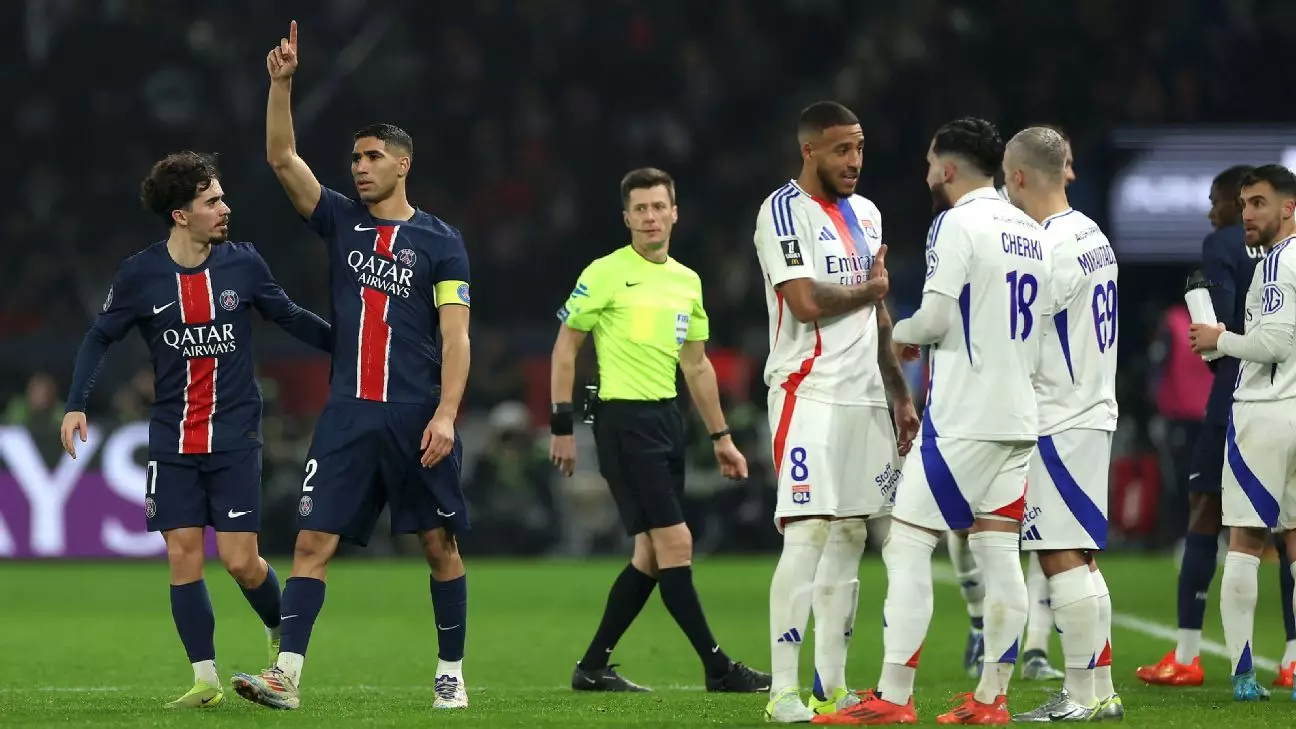The recent Ligue 1 match between Paris Saint-Germain (PSG) and Lyon brought to light a persisting issue within French football: anti-gay chanting from fans. The game, held at the iconic Parc des Princes, was disrupted midway through the second half when referee Benoît Bastien halted play after hearing discriminatory chants from the PSG supporters. This unexpected interruption illustrating the need for urgent action against rampant homophobia within the sport echoed deeper societal challenges that extend beyond the football pitch.
In a display of leadership, PSG captain Achraf Hakimi bravely approached the fans in an effort to quell the hateful chorus, a moment that highlighted the responsibility of players and officials in confronting bigotry. The stadium’s screens bore a stern reminder about the prohibition of discriminatory chants, sending a clear message: ongoing anti-gay sentiments threaten the integrity of the game and could result in dire consequences for the club. However, the dilemma remains that such interventions have proven insufficient to eradicate this form of prejudice from the stands.
Systemic Homophobia and Inadequate Responses
The chants heard during the PSG-Lyon match are not isolated incidents; they are merely the latest in a troubling series of occurrences within French football. Campaigns to raise awareness about anti-gay slurs have frequented discussions, yet the problem persists, often with minimal ramifications for those responsible. For instance, despite calls from French campaign groups urging authorities to take stronger action, particularly after an incident during a match involving Marseille fans, the response from football governing bodies appears slow and reactionary at best.
The lack of effective measures is concerning, as club officials have historically tolerated these disparaging remarks. Initiatives like the reporting system implemented by the league in 2019 aimed at allowing spectators to report homophobic and racist incidents seem inadequate against the scale of the problem, especially when incidents have reportedly intensified. Sanctions like fines and stand closures have been rolled out, but these appear to be temporary band-aids on a deep-rooted issue.
Legal Implications and the Need for Change
Notably, French legislation stipulates that making anti-gay insults in public can result in severe penalties including up to one year in jail and hefty fines. Nevertheless, this legal framework remains largely untested in the context of football, signifying a disconnect between societal laws and the enforcement within sporting environments. For example, the league’s disciplinary committee issued suspended sentences to PSG players involved in offensive celebrations that mirrored the very behaviors the league aims to combat. While apologies were offered, they merely reflected a desire to absolve immediate repercussions rather than a commitment to long-term change.
The underlying question arises: how long will football authorities allow these discriminatory chants to permeate the atmosphere in stadiums? The ongoing inaction risks sending a message that such behaviors are normalized, eroding the ethos of equality and respect that should define the sport. The recent events have ignited conversations about not only addressing the chanting but making tangible changes within the culture of fandom and player behavior.
The beautiful game must evolve into a safe space for everyone, and tackling homophobia is a critical step that French football authorities must prioritize, not just through short-lived sanctions but with a comprehensive strategy rooted in education, accountability, and genuine commitment to inclusivity. Concerted efforts are essential in ensuring that the excitement of the match day is not overshadowed by a culture of prejudice.

